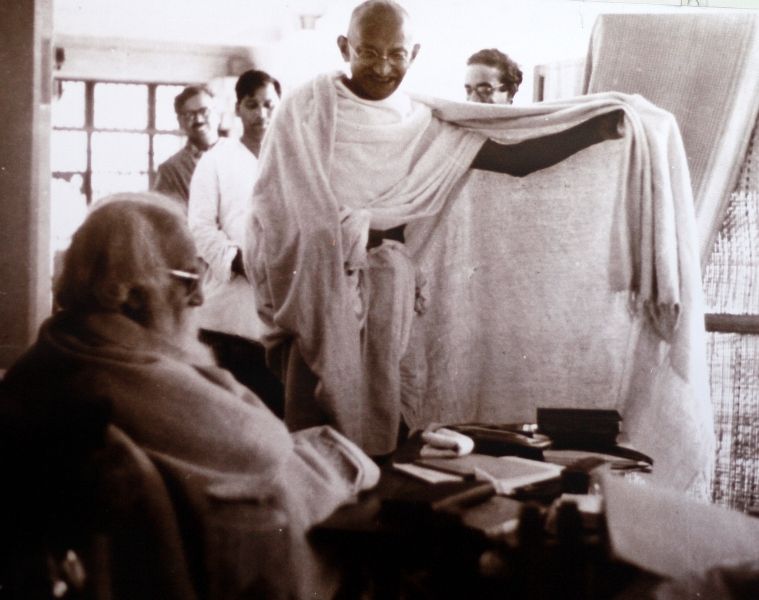Rabindranath Tagore, Mohandas Karamchand Gandhi
Rabindranath Tagore was a polymath who reshaped Indian literature, music and art with contextual modernism in the late 19th and 20th centuries. He was the first non-European to win the Nobel Prize in Literature in 1913, but he was much more than that. He was an alternative face of modernity that arrived on the horizon just in time: when India and the world had begun to grow weary of modernity’s older face. You can read more about his life and work here.
To write a short biography for a personality like Mohanchand Karamchand Gandhi, who kept redefining himself and his impact, and whose enormous persona and impact the world is still struggling to define, would be an audacity. If one were to attempt such an audacity, one would perhaps say that this man, accorded the title ‘Mahatma’ (loose translation: ‘great soul’) cast a gigantic influence over the twentieth century and continues to cast one over the twenty first. As a political figure he arguably did more than anyone else to bring the British Raj down. As a practical philosopher his legacy of non-violence and satyagraha remains invaluable. But along with the ills of a tyrannical government, Gandhi also fought the ills of an oppressive society, along the faultlines of caste, gender and religion. He ran many journalistic publications and outlined his distinct body of thought in many books. You can read more about him and his work here.
Stories by the author:

